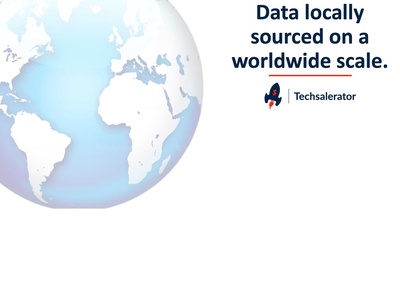What is Nursing Data? Examples, Uses & Datasets

- Overview
- Datasets
- Providers
- Attributes
- Guide
- FAQ
- Overview
- Datasets
- Providers
- Attributes
- Guide
- FAQ
What is Nursing Data?
Nursing data refers to the contact information and professional details of nurses and healthcare professionals. This data includes emails, phone numbers, and professional specialties. Nursing data is crucial for healthcare marketers, recruiters, and organizations looking to connect with nurses for professional networking, outreach, and service promotion.
What are Examples of Nursing Data?
Examples of nursing data include contact lists with verified emails and phone numbers for Registered Nurses (RNs), Nurse Practitioners (NPs), Certified Registered Nurse Anesthetists (CRNAs), Licensed Practical Nurses (LPNs), and more. This data helps healthcare organizations reach out to specific groups of nursing professionals for recruitment, marketing, and collaboration purposes.
Best Nursing Databases & Datasets
Here is our curated selection of top Nursing Data sources. We focus on key factors such as data reliability, accuracy, and flexibility to meet diverse use-case requirements. These datasets are provided by trusted providers known for delivering high-quality, up-to-date information.

Hospitals and Nursing Database/ Hospitals and Nursing Data( With email, phone and NPI).

Healthcare Leads | Healthcare Industry Leads Data | B2B Healthcare Leads | Healthcare Professionals Data | Doctors Data | Nurses Data | B2B Healthcare

Nurses Database | NPs | RNs | CRNAs | LPNs | RNAs Verified Lists - MedicoReach

Healthcare Marketing Data API | Target Health Professionals | Best Price Guarantee

Global B2B Healthcare Professionals Data | 16 MM Mailing List Masterfile

Palm Image Dataset | 78 K+ photos | Global Coverage | Hand Biometrics | Computer‑Vision Data

Hospitals and Nursing Homes List | Healthcare Facilities Data - MedicoReach

Medical Practitioner Database UK - General practitioner surgeries by Oscar Research

Dataplex: All CMS Data Feeds | Access 1519 Reports & 26B+ Rows of Contact Data | Perfect for Historical Analysis & Easy Ingestion

U.S. Healthcare Data | Medicare | National | Practitioner level
Can't find the data you're looking for?
Let data providers come to you by posting your request
Post your request
Top Nursing Data Providers & Companies
Main Attributes of Nursing Data
Below, we outline the most popular attributes associated with this type of data—features that data buyers are actively seeking to meet their needs.
| Attribute | Type | Description | Action |
|---|---|---|---|
| String | The title of a job. | View 4 datasets | |
| String | The approx. number of employees working for a company. | View 3 datasets | |
| String | The name of a company or business, might be the legal or brand name. | View 3 datasets | |
| String | The official website of a company. | View 3 datasets | |
| String | The first name of a contact. | View 3 datasets | |
| String | The last name (surname) of a contact. | View 3 datasets |
Nursing Data Attributes
Contact Information: Verified emails and phone numbers for healthcare professionals.
Professional Specialties: Data on specialties such as critical care, cardiac care, and community health nursing.
Geographic Coverage: Information on the location of healthcare professionals for targeted outreach.
Employment Details: Data on current and past employers, job titles, and professional roles.
How is Nursing Data Collected?
Nursing data is collected from various sources, including healthcare directories, publics records, professional associations, and licensing boards. Data providers aggregate and verify this information to create databases of healthcare professionals. Advanced data management tools and platforms are used to ensure the accuracy and reliability of nursing data, providing valuable insights for marketing and outreach efforts.
Why is Nursing Data Important?
Nursing data is important because it provides healthcare organizations with the information needed to connect with nursing professionals for recruitment, marketing, and collaboration. By leveraging this data, healthcare marketers can target specific groups of nurses for outreach campaigns, recruiters can identify and contact potential candidates for job opportunities, and organizations can build professional networks for knowledge sharing and collaboration.
Nursing Data Use Cases
- Healthcare Marketing: Targeting specific groups of nursing professionals with tailored marketing campaigns.
- Recruitment: Identifying and contacting potential candidates for nursing positions in healthcare organizations.
- Professional Networking: Building connections and collaboration among healthcare professionals for knowledge sharing and growth.
- Service Promotion: Reaching out to nursing professionals to promote healthcare services, products, and events.
- Research and Analysis: Analyzing nursing demographics and trends to inform policy development and strategic planning.
Frequently Asked Questions
How is the Quality of Nursing Data Maintained?
The quality of Nursing Data is ensured through rigorous validation processes, such as cross-referencing with reliable sources, monitoring accuracy rates, and filtering out inconsistencies. High-quality datasets often report match rates, regular updates, and adherence to industry standards.
How Frequently is Nursing Data Updated?
The update frequency for Nursing Data varies by provider and dataset. Some datasets are refreshed daily or weekly, while others update less frequently. When evaluating options, ensure you select a dataset with a frequency that suits your specific use case.
Is Nursing Data Secure?
The security of Nursing Data is prioritized through compliance with industry standards, including encryption, anonymization, and secure delivery methods like SFTP and APIs. At Datarade, we enforce strict policies, requiring all our providers to adhere to regulations such as GDPR, CCPA, and other relevant data protection standards.
How is Nursing Data Delivered?
Nursing Data can be delivered in formats such as CSV, JSON, XML, or via APIs, enabling seamless integration into your systems. Delivery frequencies range from real-time updates to scheduled intervals (daily, weekly, monthly, or on-demand). Choose datasets that align with your preferred delivery method and system compatibility for Nursing Data.
How Much Does Nursing Data Cost?
The cost of Nursing Data depends on factors like the datasets size, scope, update frequency, and customization level. Pricing models may include one-off purchases, monthly or yearly subscriptions, or usage-based fees. Many providers offer free samples, allowing you to evaluate the suitability of Nursing Data for your needs.






